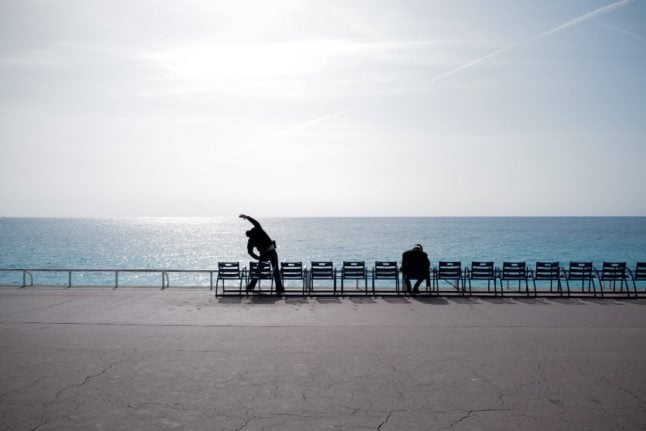“We must not and we cannot relax (our Covid measures) at this time,” government spokesperson Gabriel Attal said in a press conference following the meeting, where the government had decided to keep the weekend lockdown in place for the coming weekend.
“We will be able to consider lifting the measure next weekend,” Attal said, though cautioning that this depended on how the health situation in the areas concerned developed until then.
Authorities in the northern French town of Dunkirk on Tuesday announced the decision to extend the strict weekend lockdown for another three weeks as hospitals in the area continue to struggle to cope with Covid-19 patients. In Nice and the French Riviera, residents are still waiting to see if their weekend lockdown will be extended.
Nice was among the first cities in France to impose a weekend lockdown, alongside 62 other towns along the French riviera and Dunkirk in the north. Imposed the last weekend of February, the measure was initially set to last for two weekends.
The government added Pas-de-Calais to the list last Thursday, and the northern département will remain on lockdown for at least three weekends. The greater Paris region Île-de-France and 22 other areas on “heightened alert” for high Covid rates escaped the restrictive measures.
On Tuesday, the préfecture of the département Nord announced the decision to prolong the measure in the city of Dunkirk, saying the health situation in the city remained “particularly tense” and required “at least” another three weekends of strict lockdown.
While “the first effects of the measures taken are beginning to show,” notably by decreasing the incidence rate in Dunkirk – the number of new cases per 100,000 inhabitants – it was too early to ease restrictions, the statement said.
“All intensive care bed today are today occupied” by Covid patients, according to the préfecture. Five patients had to be transferred on Monday, adding up to 90 patient transfers in one month.
All of France is currently on a strict 6pm to 6am curfew, in addition to other general health rules such as mask-wearing outdoors and inside public spaces.
The government has said several times that it wants a weekend lockdown to be a “last resort” in particularly hard-hit areas where hospitals struggle to cope.
EXPLAINED: What are the rules in the parts of France on weekend lockdown?
Nice’s Mayor Christian Estrosi previously said he believed the health situation to have sufficiently improved to scrap the measure.
“We are already seeing a drop in the incidence rate that should not justify a third weekend of lockdown,” Estrosi told the local newspaper Nice Matin.



 Please whitelist us to continue reading.
Please whitelist us to continue reading.
Member comments